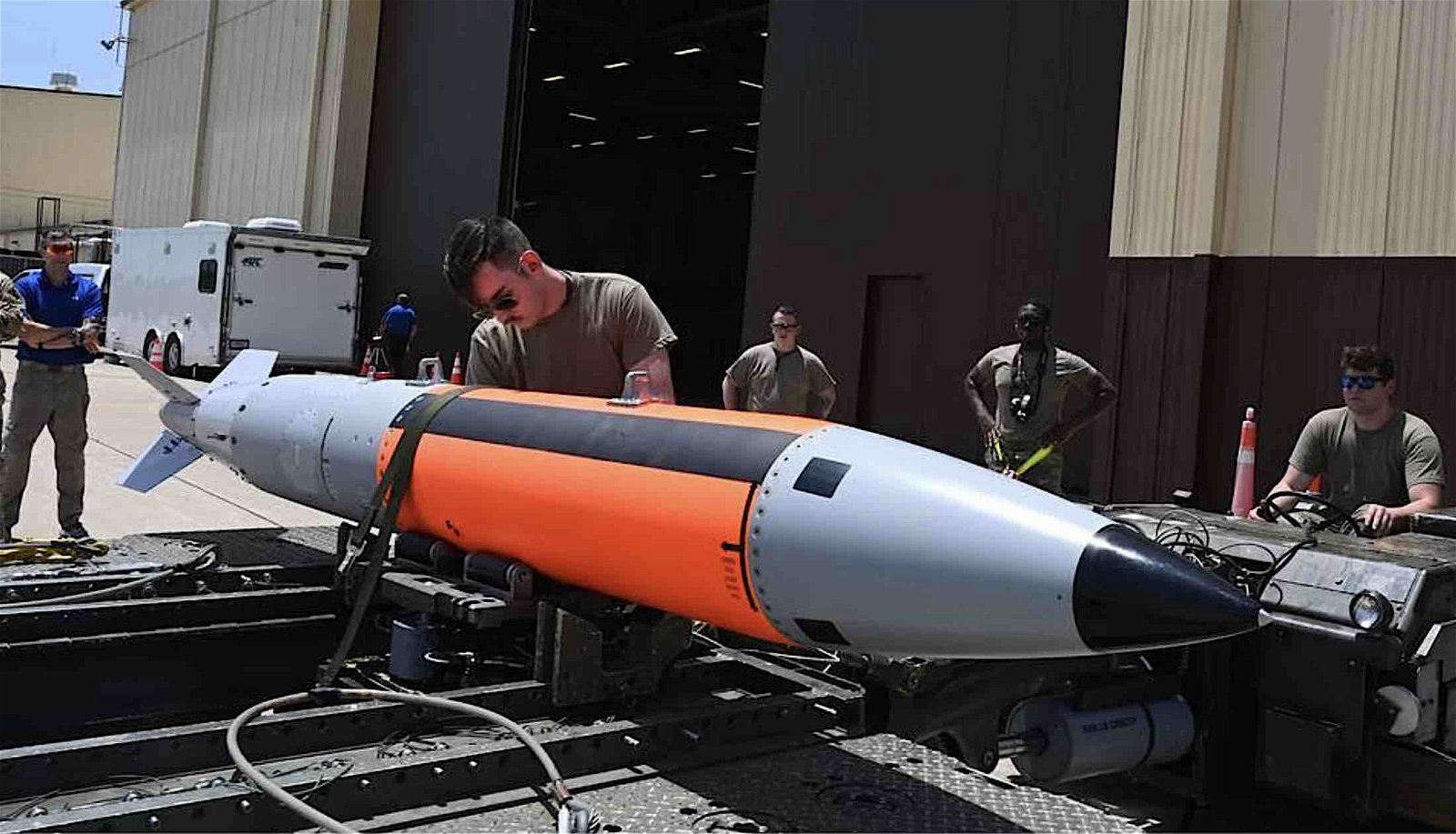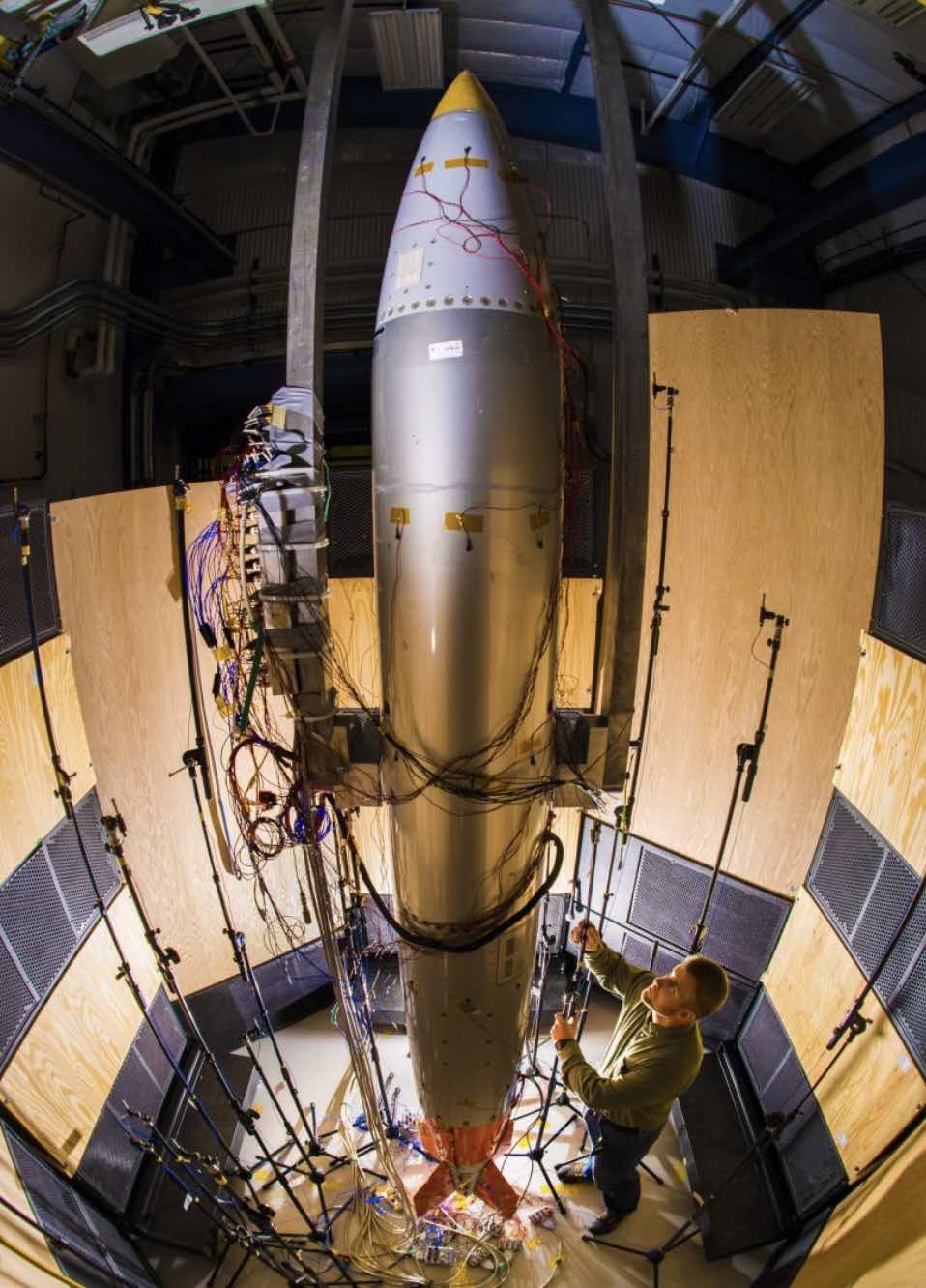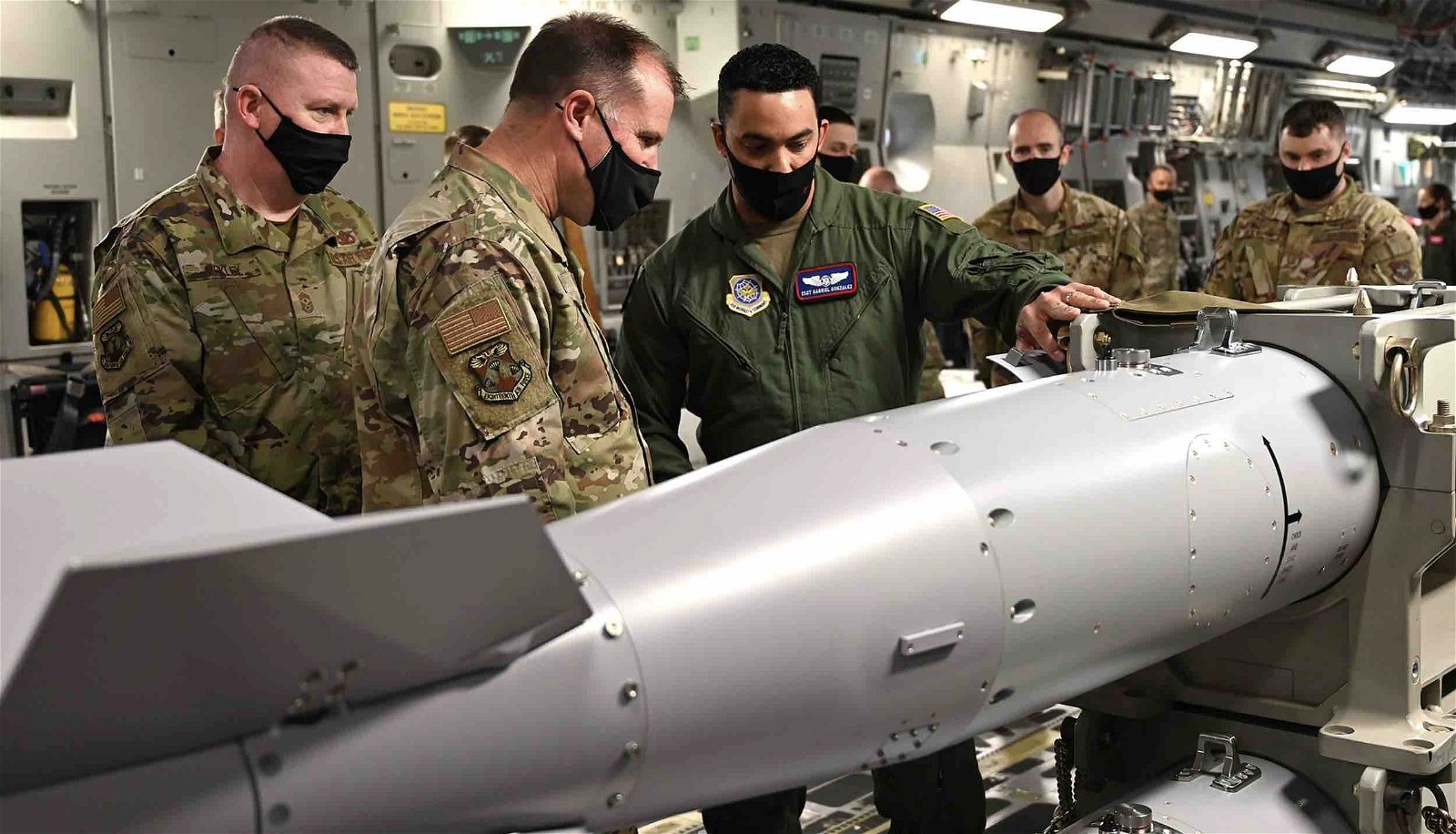The U.S. is planning to develop a modernized variant of the B61 nuclear gravity bomb, the Department of Defense (DoD) has revealed.
Called the B61-13, the new weapon will aim to “strengthen deterrence of adversaries and assurance of allies and partners by providing the President with additional options against certain harder and large-area military targets,” according to a fact sheet released by the Pentagon on Sunday.
Gravity bombs, also known as free-fall bombs since they do not contain guidance systems, and thus fall unguided under the influence of gravity along a ballistic trajectory, include all aircraft unguided bombs that have seen general service from World War II up through the late 1980s.


The Pentagon says the B61-13 is slated for development, pending authorization and appropriation by Congress, and that the development of the new weapon “is not in response to any specific current event,” but that it “reflects an ongoing assessment of a changing security environment.”
America’s Newest Nuclear Gravity Bomb
Production of the weapon is expected to be undertaken by the Department of Energy’s National Nuclear Security Administration (NNSA), the U.S. agency tasked with developing military nuclear technologies for national defense and security purposes.
“The decision to pursue this capability, which was undertaken in close collaboration with the NNSA, responds to the demands of a rapidly evolving security environment as described in the 2022 Nuclear Posture Review,” the Pentagon said on Sunday.
Outlining the country’s current nuclear deterrence strategy and policy, the 2022 Nuclear Posture Review (NPR) detailed aspects of the U.S.’s reliance on nuclear weapons as a potential deterrent against strategic attack and announced the United States Declaratory Policy on nuclear weapons.
“As long as nuclear weapons exist, the fundamental role of U.S. nuclear weapons is to deter nuclear attack on the United States, our allies, and partners,” according to the NPR’s Declaratory Policy. “The U.S. would only consider the use of nuclear weapons in extreme circumstances to defend the vital interests of the United States or its allies and partners.”


According to the 2022 NPR, foreign nations in competition with the U.S. “continue to expand, diversify, and modernize their nuclear forces while increasing reliance on nuclear weapons,” the fact sheet released on Sunday stated, adding that the Review proposed “a balanced approach to the security environment, investing in deterrence while renewing a commitment to pursue arms control and other risk reduction measures.
“As the security environment evolves, it is necessary for us to consider nuclear force adjustments to assure our ability to achieve deterrence and other objectives,” the document stated.
Updating America’s Nuclear Gravity Bomb Arsenal
The DoD says the B61-13 will replace some of the existing bombs in the U.S. arsenal, primarily the B61-7, which for decades has remained the main thermonuclear gravity bomb kept in the U.S. stockpile since the end of the Cold War.
With an explosive yield similar to its predecessor, the new modernized variant is expected to differ only in the inclusion of new safety and security features, as well as new means of improving the accuracy of the B61-13’s delivery.
Legacy systems that include the B61-7 and the B83-1 models will be retired in the years ahead.
The Pentagon also said on Sunday that production of the B61-13 would not increase production of the number of weapons currently in the U.S. stockpile and that a proportional decrease in the number of B61-12 explosives will be undertaken to facilitate the production of new B61-13s.
Micah Hanks is the Editor-in-Chief and Co-Founder of The Debrief. He can be reached by email at micah@thedebrief.org. Follow his work at micahhanks.com and on Twitter: @MicahHanks.

